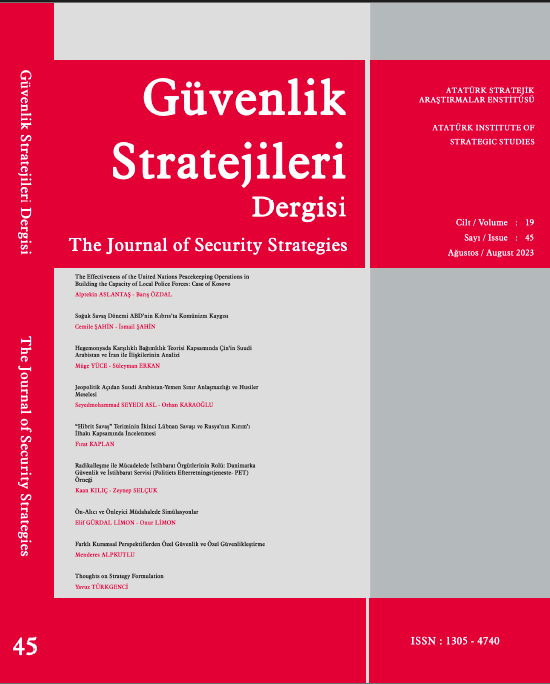Hegemonyada Karşılıklı Bağımlılık Teorisi Kapsamında Çin’in Suudi Arabistan ve İran ile İlişkilerinin Analizi
Analysis of China’s Relations with Saudi Arabia and Iran within the Scope of Theory of Hegemonic Interdependency
Author(s): Müge Yüce, Süleyman ErkanSubject(s): Politics / Political Sciences, Governance, Globalization
Published by: Atatürk Stratejik Araştırmalar Enstitüsü
Keywords: Hegemony; Middle East; China’s Foreign Policy; Iran; Saudi Arabia;
Summary/Abstract: This study explains China’s Middle East policy through its relations with Iran and Saudi Arabia. The main argument is that China’s Middle East policy is not based on achieving global hegemony but on cooperation and avoidance of conflict with the United States, which is still a hegemon power albeit its declining effect in the region. In support of the argument, the study discusses the “mutually dependent hegemonic powers” theory developed by J. Abu Lughod and interprets Chinese relations with Saudi Arabia and Iran comparatively. Lughod predicts that the 21st-century world order will have an appearance in which there is not one hegemonic power dominating the system, but there are several core powers that can coexist instead. According to the findings, China’s Middle East policy is based on coexistence with the dominant power of the region as one of the core powers in the global system.
Journal: Güvenlik Stratejileri Dergisi
- Issue Year: 19/2023
- Issue No: 45
- Page Range: 333-362
- Page Count: 30
- Language: Turkish

